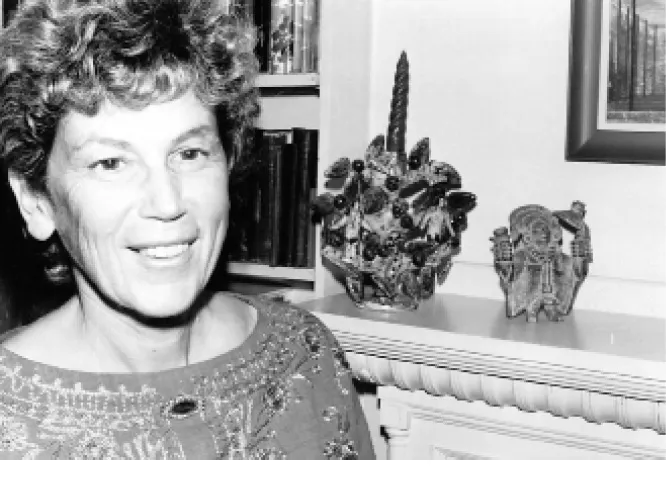Miriam Waddington (1917–2004)
Miriam Waddington was a poet and author whose work is marked by the inclusion of social justice themes and pastoral imagery. Waddington was born in 1917 and grew up in an insulated Jewish community in Winnipeg. Her family life revolved around their Jewish heritage and Yiddish culture. Her parents, Isaac Dworkin and Masha Dobrusin, were Russian immigrants and imbued Waddington with socialist values, which were expressed in her studies and work. Her Jewish identity and historical knowledge influenced her writing, as seen in poems such as “Elijah” and “My Travels,” which employ religious imagery and biblical allusions.
Waddington faced anti-Semitism for the first time when her family moved to Ottawa, where she was exposed to attitudes of Anglo-Saxon superiority in the public school system and later at the University of Toronto. She channelled these experiences into her poetry, which she began to write in earnest with guidance from Yiddish poet Ida Maze1 and the Montreal artistic community to which her family was linked. Waddington published her first volume of poetry, Green World, in 1945 with the assistance of publisher and modern poetry pioneer John Sutherland.2 Over the next six decades, Waddington published fourteen volumes. Many of Waddington’s poems revolve around the concept of intersectionality, the experience of oppression based on multi-layered social identities. This is notably explored in poems like “The Bond,” which were based on her experiences of anti-Semitism in Toronto as a young woman.
Waddington acknowledged that the combination of her gender and her religion created a massive social barrier for her and generated feelings of conflicting identities and isolation. As a result, Waddington became passionate about social change: besides writing, she had a career as a social worker, advocating for the Jewish Family Service, a prisoner’s rehabilitation society, mental illness facilities, and other communities. Her experiences and emotional engagement with social work influenced her poetry, which explores drug abuse, mental illness, and isolation. She also wrote landscape and romantic poetry. Waddington met her husband, Patrick Waddington, a journalist and an activist, at an anti-fascist meeting in Ottawa. They married in 1939, had two sons together, but divorced in 1965.
In 1962 Waddington became a lecturer at the University of Toronto and York University. The 1960s were a time of rising Canadian nationalism, which Waddington explored in collaboration with the National Film Board for a collection of poetry and photography entitled Call Them Canadians. She surveys themes of travelling and migration, while questioning the creation of national myths or social cohesion for such a vast landscape and its varied peoples.
Waddington’s work engages the Canadian landscape; volumes containing pastoral poetry, such as Driving Home (1972) and The Last Landscape (1992), are based on a childhood lived in both urban and rural communities. Waddington died in 2004, but her poetic work left an extensive impact on Canadian-Jewish culture and contributed to social change.
References
Menkis, Richard. “Miriam Dworkin Waddington.” Jewish Women’s Archive. March 1, 2009. https://jwa.org/encyclopedia/article/waddington-miriam-dworkin.
Monk, Lorraine, and Miriam Waddington. Call Them Canadians: A Photographic Point of View. Ottawa: Queen’s Printer, 1968.
Waddington, Miriam. Apartment Seven: Essays New and Selected. Toronto: Oxford University Press, 1989.
Waddington, Miriam, and Ruth Panofsky. The Collected Poems of Miriam Waddington: A Critical Edition. Ottawa: University of Ottawa Press, 2014.
Whalley, George and Miriam Waddington. Writing in Canada; Proceedings of the Canadian Writers’ Conference, Queen’s University, 28–31 July 1955. Toronto: Macmillan of Canada, 1956.
Recorded on November 3, 1969
This is Miriam Waddington.
Understanding Snow
how hard it is
to understand
s...

